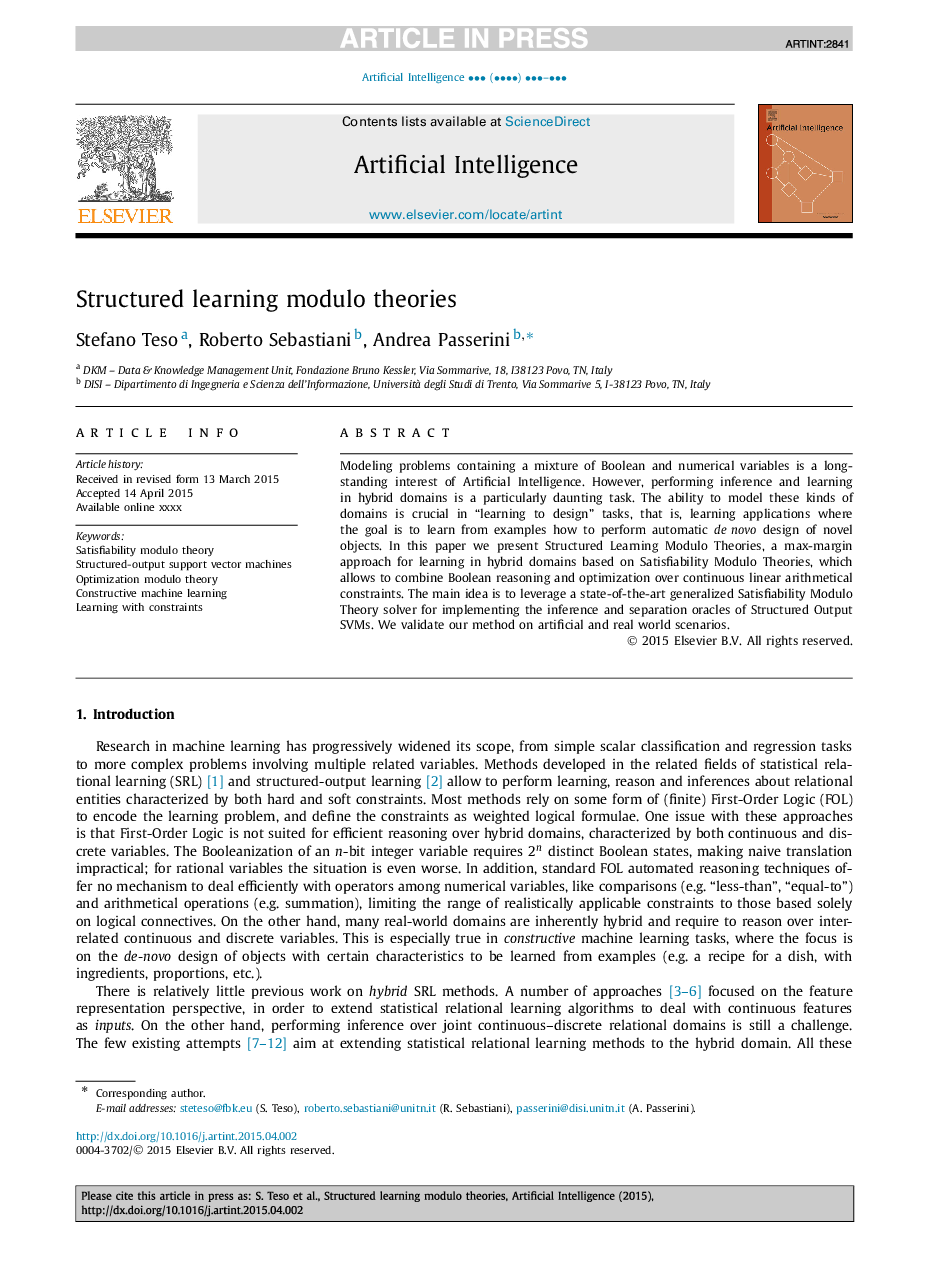| Article ID | Journal | Published Year | Pages | File Type |
|---|---|---|---|---|
| 4942066 | Artificial Intelligence | 2017 | 22 Pages |
Abstract
Modeling problems containing a mixture of Boolean and numerical variables is a long-standing interest of Artificial Intelligence. However, performing inference and learning in hybrid domains is a particularly daunting task. The ability to model these kinds of domains is crucial in “learning to design” tasks, that is, learning applications where the goal is to learn from examples how to perform automatic de novo design of novel objects. In this paper we present Structured Learning Modulo Theories, a max-margin approach for learning in hybrid domains based on Satisfiability Modulo Theories, which allows to combine Boolean reasoning and optimization over continuous linear arithmetical constraints. The main idea is to leverage a state-of-the-art generalized Satisfiability Modulo Theory solver for implementing the inference and separation oracles of Structured Output SVMs. We validate our method on artificial and real world scenarios.
Keywords
Related Topics
Physical Sciences and Engineering
Computer Science
Artificial Intelligence
Authors
Stefano Teso, Roberto Sebastiani, Andrea Passerini,
